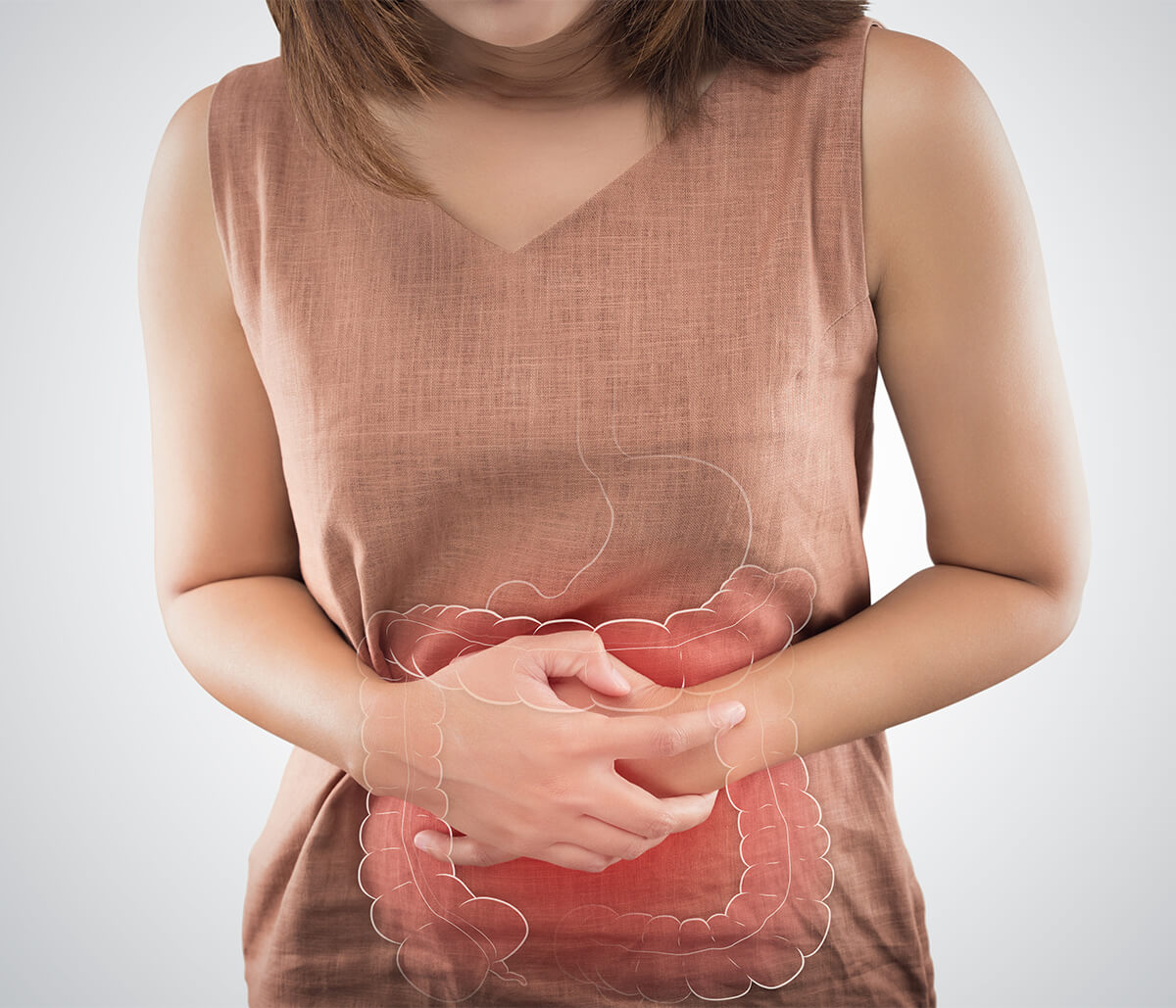Irritable Bowel Syndrome / IBS
“Let food be thy medicine, and medicine be thy food,” this famous Hippocrates quote dates back to 400 BC. While since then, the birth of modern medicine has outdated the practices of those times, this particular quote (and many others) from the man known as the father of medicine still holds strong and true today.

What we eat and the decisions we make about what to put into our bodies make all the difference. For many, that difference translates to the quality of life and resolution of symptoms. When it comes to irritable bowel syndrome or IBS, the standard of treatment has been to relieve constipation or diarrhea SYMPTOMS without addressing the root cause. While root causes and testing are vast for IBS, each person needs a customized evaluation, and changes in lifestyle and diet must be the first step in healing.
Here are some of the common inflammatory and triggering foods:
Gluten, dairy (specifically cow’s milk), processed and refined sugar, fried foods (using rancid seed oils), onions, raw vegetables, and cruciferous vegetables (broccoli, brussels sprouts, cauliflower).
It is best to begin an elimination diet with these foods. Start a food log and record symptoms. Most patients will report a change when eliminating one or more of the foods from this list within one month.
What that looks like:
Eliminating gluten, which includes pasta, cereals, cookies and baked goods, and bread, and reading labels to ensure gluten is not present. You will be surprised to find gluten lurking in many unsuspecting foods, like ketchup and soy sauce. Record the days you are on the gluten-free diet and record both bloating symptoms and bowel habits. Observe what happens and record. After four to six weeks, if you are unsure of the difference, re-introduce the foods and record what happens.
Why are these foods bad for us?
The foods listed above are highly inflammatory and start to affect the lining of your gut, which throws off the balance of the good and opportunistic bacteria, also known as “dysbiosis.” This, in turn, affects how the muscles that move the food down work and affects how the bowels eliminate and absorb nutrients. The weakening of the gut walls leads to thin mucus and broken layers that allow certain particles to leak into the bloodstream, known as “leaky gut.” This causes symptoms of IBS along with other unwanted symptoms such as allergies, fatigue, and skin issues, to name a few.
The lining needs repair to further the healing, which includes incorporating gut-friendly foods rich in probiotics and prebiotics. Taking a good quality probiotic and prebiotic can speed things up as well.
Food is a big piece of the puzzle, but HOW you eat also needs adjustment. We rush and have taken the ‘to go’ model way too far. The body needs REST & DIGEST.
Chewing slower, sitting down for meals, eating at the same time each day, and avoiding eating late in the evening can also serve as treatments.
Recommendations in a snapshot:
- Start an elimination diet and food log, starting with the high-inflammatory foods
- Eat probiotic-rich foods like raw fermented kraut, kimchi and take a good quality probiotic
- Use herbs and spices that lower inflammation and soothe the GI tract, like turmeric, aloe water (sugar-free), fennel seed, marshmallow root tea, and dandelion root tea
- Sit down for meals at the same time each day and chew slowly
- Read the ingredients and packaging labels on the foods you eat. If you can’t pronounce it, then do not buy it
- Avoid foods that use inflammatory oils like soybean oil, corn oil, sunflower oil, and canola oil. Stick to butter, ghee, olive oil, and avocado oil
- Ditch the sugary drinks, which include fruit juices and coke/Pepsi
- Eat WHOLE foods: Meat, fish, poultry, buckwheat, oats, berries, vegetables like squash and other root vegetables, lettuce, celery, cucumbers, and carrots
- Stay hydrated: CANNOT stress this enough. Most people are chronically dehydrated, and drinking just the right amount of clean water can make a huge difference. Take your weight and multiply by 0.5. That is the amount of water you need daily in ounces. Example: 150 pounds X 0.5= 75oz of water which is 2.2 liters a day! It seems like a lot, but that is why most people are walking around dehydrated, their water intake falls daily and below the body’s needs
Share this Article
Back to Blog Page

